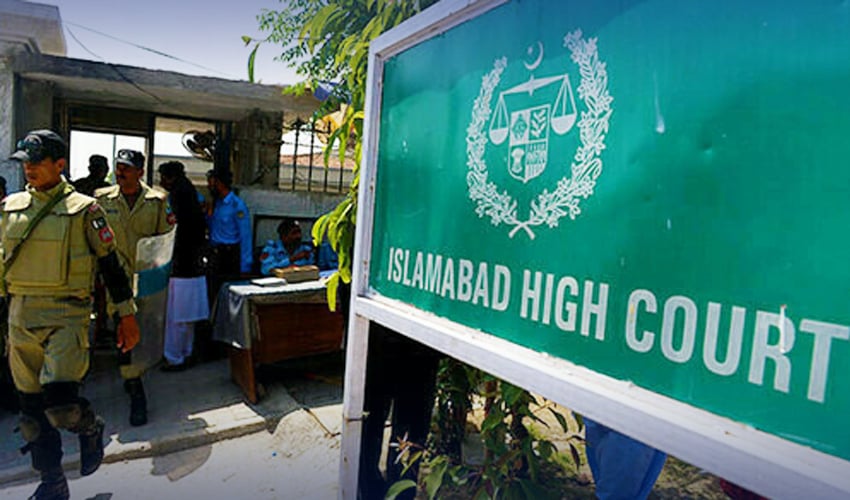The Islamabad High Court has issued its written order on the applications against detention under the Maintenance of Public Order (MPO).
Islamabad High Court’s Justice Babar Sattar issued an 82-page order, stating that the federal government has individual powers with respect to Islamabad. For Islamabad, both the federal and provincial governments are akin to the federal government.
“Any decision in Islamabad can only be made with the advice of the federal cabinet,” the order stated, adding that according to the Constitution, Islamabad is the federal capital, not a part of any province.
The presidential order No 18 of 1980 was issued by former president and military ruler Gen (retd) Ziaul Haq, divesting the powers to arrest under the MPO to the chief commissioner, who then delegated it to the deputy commissioner.
The court declared the authority of the Islamabad deputy commissioner (DC) to issue orders under the MPO illegal and in excess of authority. The chief commissioner's notification of 1992 delegating powers to the DC was also declared unconstitutional.
The federal government has been ordered to formulate rules related to the use of provincial powers in three months. The order mentioned that the federal government was the provincial government as far as Islamabad was concerned, and not the chief commissioner.
Detention under MPO is illegal because the law has to come into force once a crime is committed, the court said in its order. A law for prior detention could not be enacted nor for preventive detention. This option could have been exercised prior to the enactment of the present Act, said the order.
The Islamabad deputy commissioner, as a magistrate, issued 67 MPO orders from May to September, as per the court. A majority of these orders were against the PTI leadership or workers.
The PTI leadership claimed it was being targeted on the basis of its political affiliation, the order stated.
All the MPO orders challenged were either quashed, withdrawn, or rendered ineffective by the courts. There was not a single MPO order that was issued after due legal process, the court order stated.
The court also noted that a second MPO order was issued in September against PTI leader Shehryar Afridi, who has been in custody since May. The district magistrate was repeatedly given an opportunity, but he could not produce any evidence, it added.
Also Read: IHC declares DC's authority to issue 3-MPO as illegal
According to the available records, the district magistrate committed fraud against the Constitution and the law. The manner in which he exercised the power also fell under the category of malice, the court said.
The court also said it was not making further observations, as contempt of court proceedings were pending against the deputy commissioner. A fair trial demands that the court not make any observations before the trial is completed.
The order observed that in 1977, Ziaul Haq imposed martial law by abrogating the Constitution. He seized the powers of the state by imposing a martial law, and issued three presidential orders in 1980, 1987 and 1990.
The Presidential Order made the chief commissioner, a Grade 20 officer, a one-man provincial government, the order noted. All the notifications conferring the authority of the provincial government on the chief commissioner were contrary to the Constitution.
“It is against the Constitution to arrest someone merely on the suspicion of a threat to peace,” the court noted. It further said that the issuance of arrest warrants on insufficient material was an abuse of power.
The court accepted five petitions against detention orders, and disposed of one of them. A copy of the order should be sent to the Cabinet Division secretary for implementation, the court stressed.



























